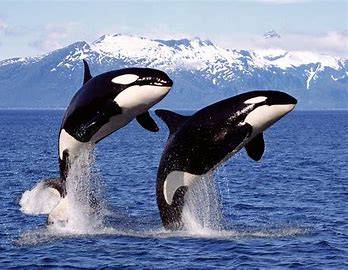A lone orca killed a great white in less than two minutes. Scientists say it could signal an ecological shift
Since at least 2017, a pair of orcas off the South African coastline have been preying on great white sharks, targeting their nutrient-rich livers and leaving the rest of the carcasses behind. This coordinated hunting behavior has baffled scientists and driven great whites away from parts of the coast near Cape Town. Now, a groundbreaking observation has revealed a surprising twist in their predatory behavior, shedding light on its potential implications for the marine ecosystem.
Last year, researchers witnessed a male orca known as Starboard kill a juvenile great white shark measuring 2.5 meters (8.2 feet) long in just two minutes, acting alone. This marks a significant departure from the more commonly observed cooperative hunting tactics orcas use when targeting large prey, such as sea lions, seals, and even sharks.
Over two decades of annual visits to South Africa, I’ve observed the profound impact these killer whales have on the local white shark population, said Dr. Primo Micarelli, a marine biologist at Italy’s Sharks Studies Centre and the University of Siena. Seeing Starboard carry a white shark’s liver past our vessel is unforgettable. Despite my awe for these predators, I’m increasingly concerned about the coastal marine ecology balance.
The observation, detailed in a study published in the African Journal of Marine Science, is the first documented instance of an orca hunting a great white shark alone. Lead author Alison Towner, a doctoral researcher at Rhodes University, emphasized how this behavior challenges the traditional understanding of orca predation.
Previously observed attacks on great whites involved two to six orcas and could take up to two hours, Towner explained. This sighting revealed evidence of solitary hunting by at least one killer whale, challenging conventional cooperative hunting behaviors known in the region.
Towner, who has studied great white sharks for 17 years, said this discovery provides crucial insights into orca predatory strategies and their impact on marine ecosystems. The presence of these shark-hunting orcas appears to be influencing the movements and behavior of great white sharks along the coast, potentially altering broader ecosystem dynamics.
These are groundbreaking insights, Towner noted. However, the rapid developments in this phenomenon make it challenging for science to keep pace.
The study underscores the complex interplay between predator and prey and raises important questions about the balance of marine ecosystems in the face of such disruptive behaviors.




No comments yet
Be the first to share your thoughts!